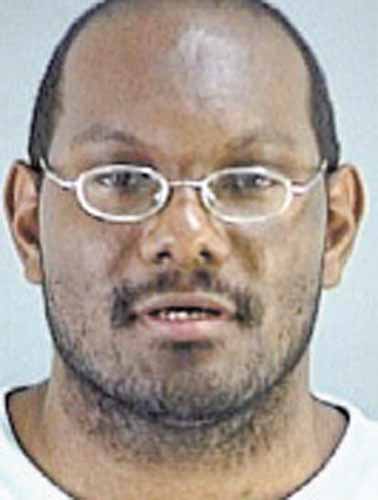‘I’m not hiding,’ Ponzi suit defendant tells Vindy

Keelan Harris
By Ed Runyan
WARREN
Where’s Keelan Harris? In Colombia, South America, he says.
The U.S. Commodity Futures Trading Commission made a public inquiry a couple of months ago regarding the whereabouts of Harris, of Warren.
“I’m not hiding, but I have no reason to come home. They haven’t said, ‘Come home,’” he said from Colombia, where he has lived off and on for a couple of years.
The commission published legal ads in The Vindicator last month in an attempt to notify him that he had 21 days to respond to a lawsuit the commission filed against him last fall in federal court. It was necessary to run a legal ad because other methods of serving the suit upon Harris had been unsuccessful, the commission said, because it didn’t have a current address.
The lawsuit was filed against Keelan Harris and his brother, Kevin Harris, also of Warren, regarding the companies Complete Developments and Investments International Inc. (I3) that the brothers operated on Parkman Road Northwest in 2007 and 2008.
Federal prosecutors later called the companies a $20 million Ponzi scheme, in which money collected from later investors was used to pay bogus “profits” to early investors, most of them from the Toronto, Ontario, area.
Kevin Harris later was convicted of wire fraud and money laundering and will be sentenced in June in Cleveland federal court.
But Keelan Harris, who called The Vindicator on Thursday, said he doesn’t know why the federal government makes it sound like it has no way of contacting him when investigators have had his phone number and email address for two years.
“They know my whereabouts. They know my phone number,” he said, adding that they also know his address.
Dennis Holden, a spokesman for the CFTC in Washington, D.C., said he could not comment on Keelan Harris’ remarks.
Keelan Harris said he’s prepared to answer questions about the investment companies and their activities and will return to the U.S. if necessary, but he already answered investigators’ questions in 2009.
Keelan Harris said he told investigators that he “basically had a job there” with Complete Investments and I3, even though he was listed as president of I3.
Some of his duties involved taking out the trash, cleaning windows and serving as information-technology expert. He did set up the computer system that paid checks to investors for several years, but said he was never involved in any of the marketing for the company.
He was paid about $15,000 in 2007 and about $30,000 in 2008 by his brother, Keelan Harris said.
Complete Developments and I3 billed itself as a professionally managed company offering returns of 7 percent to 12 percent monthly on foreign-currency-exchange and other investments, but in reality, the companies did almost no trading and had no expertise, the U.S. Attorney’s office said.
“I wasn’t a trader,” Keelan Harris said. “I worked under a salary. I never misled anybody. I never talked to anybody about [Kevin’s] trading skills. I referred questions to Kevin,” Keelan Harris said.
“My brother basically spent $7 million in investments. In most of them, he got ripped off,” Keelan Harris said, adding that he believes close to $2 million may still be recoverable from a condo development in Dubai in the United Arab Emirates, but the rest of the money is gone.
The CFTC also is looking for Karen Starr of Barrie, Ontario, Canada, who also assisted in the management of the companies. Keelan Harris said he believes Starr is in Dubai.
The CFTC’s lawsuit seeks to recover any of the investment money the defendants still have and to impose sanctions on the defendants.
On Wednesday, the court issued an “entry of default” for Keelan Harris and Starr, saying they were “in default, having failed to plead or otherwise defend in this case as required by law.”
One legal expert says such an entry is a first step that would allow the judge to levy sanctions against the defendants, such as an order to repay fraudulently obtained money or ban them from working in the financial industry again.
 43
43
